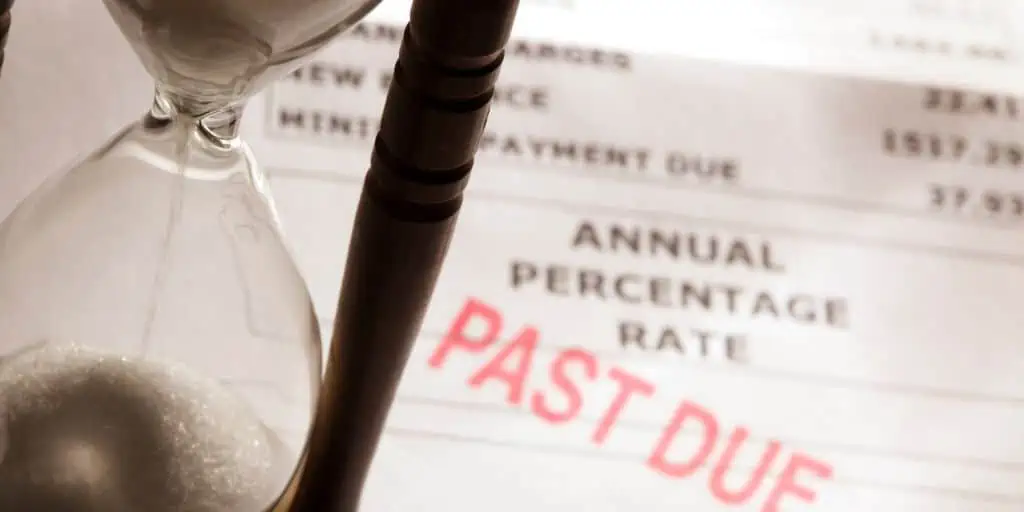What Is a Non-Performing Note?
REtipster does not provide tax, investment, or financial advice. Always seek the help of a licensed financial professional before taking action.
Shortcuts
- A non-performing note is a type of real estate note linked to a loan that hasn’t been paid for at least 90 days.
- Also known as distressed mortgage notes, non-performing notes are the opposite of performing notes, paid on time and in full.
- The home loans tied to non-performing notes are generally bad debt, so investing in them is a high-risk, high-reward undertaking.
- To invest in these notes, you can buy directly from lenders, use note brokers, or search for deals on online marketplaces.
An Overview of Note Investing
Mortgage notes consist of the promissory note and the lien. These notes contain the terms and conditions requiring the borrower to repay the home loan as agreed. If the borrower fails to pay the debt for a certain period, the lender can foreclose on the house[1] to collect the remaining amount.
Note investing is an easier and faster way to get started in real estate, whether performing or non-performing. It represents a real estate business without actively managing a rental property[2] or flipping a fixer-upper[3]. Some investors also note investing to achieve portfolio diversification.
Since distressed notes are often sold at a discount (sometimes for as low as 10 to 50 cents on the dollar), you can multiply your initial investment if you successfully turn them into performing notes.
Alternatively, you can buy them at a discount, then resell them at a profit.
Drawbacks of Note Investing
Buying distressed notes has a few drawbacks.
The biggest is that home loans associated with these notes are overdue by 90 days or more. So if you want to make money off them over the long term, it’s best to help borrowers[4] overcome delinquency.
Unfortunately, there’s a reason they couldn’t pay off their obligations, so this is a difficult and time-consuming process with no guarantees.
Non-performing notes often wind up on the market because the lenders holding them are no longer convinced the debt is recoverable. This means they want to cut their losses by unloading the burden of the debt to investors.
Is a Non-Performing Loan Bad Debt?
A non-performing loan can be considered bad debt since it takes more money from the lender than it brings in.
In addition, having multiple non-performing notes can negatively affect the lender’s liquidity[5], so most lenders sell them on the open market, typically at a loss.
Where to Buy Non-Performing Notes
You can buy non-performing notes from lenders, brokers, and online marketplaces.
Lenders often sell notes with the most significant discounts, but not all sell notes to individual investors. Instead, some prefer pooling them for resale for other financial institutions and hedge funds. A broker can help you find more note sellers if you want to find more deals. However, this intermediary thrives on commissions, so you may have to pay extra to use their services.
Online note marketplaces are exchanges where note buyers and sellers can easily trade. Note that these platforms may not give you access to wholesale prices and charge you extra for their convenience.
Furthermore, you can buy a bundle of non-performing notes through a mortgage-backed security (MBS). If you want to try these assets without managing them directly, you can put your money in real estate investment trusts (REITs) instead[6].
RELATED: 088: A Seamless Solution for Buying and Selling Real Estate Notes
Performing Notes vs. Non-Performing Notes
As explained above, performing notes are tied to current (i.e., paid on time) loans, while non-performing notes are tied to loans past due.
Although you can’t buy performing notes at a discount, they’re a safe bet to enjoy positive cash flow. Performing notes are sold because their holders want to be more liquid and build up deeper lending reserves.
Meanwhile, holders of non-performing notes usually believe they’re a lost cause. Without intervention, they aren’t the top choice of investors if they want a reliable source of passive income.
Because of the nature of non-performing notes, many investors auction the note’s underlying property after foreclosing on it. This way, if the property sells at a higher price than the amount they bought the note for, they can enjoy net profit from the whole affair.
What Is a Non-Performing First Mortgage?
A non-performing first mortgage refers to the borrower’s primary home loan. This implies that at least a second mortgage[7] is involved.
Due to lien priority[8], the first mortgage note is the senior lien, while the second, third, and maybe even fourth mortgage notes are the junior liens. If the property is foreclosed and sold, the first mortgage note gets paid before the others.
If the money from the sale isn’t enough to pay all the debts, the holders of the lower-ranking notes might get nothing. Once the foreclosure sale is done, any unpaid claims might be removed from the property’s legal title, depending on jurisdiction and the nature of the lien.
However, any debts left unpaid still exist. If you hold a lower-ranking note and don’t get enough money (or none at all) after the foreclosure, you have the right to sue the borrower to collect what’s owed to you[9].
Some legal claims, like a property tax lien on a house, place even higher than mortgage notes on this hierarchy of liens.
Sources
- Yale, A. (2023, January 20.) The Stages of the Foreclosure Process. The Balance. Retrieved from https://www.thebalancemoney.com/foreclosure-basics-1798178
- Landlord Responsibilities and Duties of a Tenant. (2020, February 27.) Zillow. Retrieved from https://www.zillow.com/rental-manager/resources/landlord-rental-maintenance-laws/
- Sowers, S. (2013, November 8.) The art and science of flipping a fixer-upper. The Washington Post. Retrieved from https://www.washingtonpost.com/realestate/the-art-and-science-of-flipping-a-fixer-upper/2013/11/07/7d7be4b2-4630-11e3-b6f8-3782ff6cb769_story.html
- Grace, M. (2022, October 17.) Facing foreclosure? Here’s how to stop it. Insider. Retrieved from https://www.businessinsider.com/personal-finance/how-to-avoid-foreclosure
- Non-Performing Loan (NPL). (2022, December 12.) CFI. Retrieved from https://corporatefinanceinstitute.com/resources/commercial-lending/non-performing-loan-npl/
- Vijayasarathy, D. (2021, September 6.) What Are REITs And How Do They Work? Forbes. Retrieved from https://www.forbes.com/advisor/in/investing/what-are-reits-and-how-do-they-work/
- Robertson, C. (2022, December 8.) Second Mortgages Explained: The 80/20, Piggyback, and More. The Truth About Mortgage. Retrieved from https://www.thetruthaboutmortgage.com/second-mortgages/
- King, C. (2021, November 19.) How Different Types of Liens Are Affected by Foreclosure. Upsolve. Retrieved from https://upsolve.org/learn/liens-foreclosure/
- Loftsgordon, A. (2023, February 28.) What Happens to Liens and Second Mortgages in Foreclosure? Nolo. Retrieved from https://www.nolo.com/legal-encyclopedia/what-happens-liens-second-mortgages-foreclosure.html









